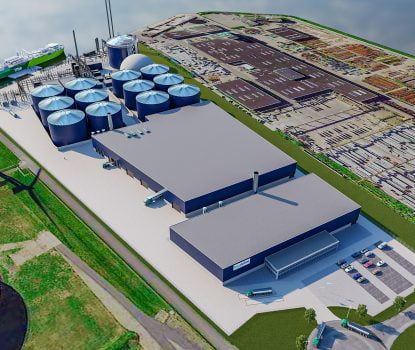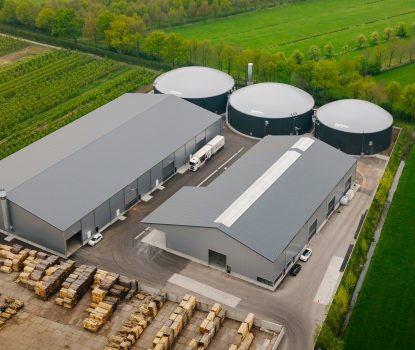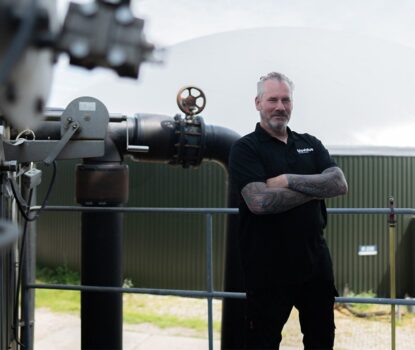A handy overview of what we process.
Agricultural
Organische restproducten uit de agrarische sector
Bio
Foodstuff not fit for human or animal consumption.
Animal feed
Food waste substances separated during the production of animal feed
Biofuels
Organic waste set free by the production of biofuels.
Flotation sludge
Sludge from water treatment systems.
Make your supply chain sustainable: How it works.
Let’s take a food manufacturer as an example. The crop comes from the field and is processed. During this processing, losses occur that are not suitable for consumption, however, we are able to use these waste streams as raw materials in our fermentation units.
We purchase the waste from the manufacturer. It arrives at our facility by truck and we store it in one of our storage sheds. Because we have a lot of storage capacity, we can always guarantee uptake.
We ferment the organic waste – so-called renewable raw materials – to produce biogas. Moisture and sulphur is extracted from the biogas to upgrade it to green gas, bio-CNG or bio-LNG.
After fermentation, a valuable residual stream still remains, we call these digistate. The digistate is dried and converted into manure pellets. The agrarian farmer use these fertilizer pellets to optimize the crop and provide a more sustainable product. And so the sustainable cycle begins anew.
The power of BioValue
Reliable and qualitative
Our process is well managed from start to finish. In all the organic waste we process, fermentation is the most efficient and sustainable option. We demonstrate this with the ISCC and Better biomass certificate. All players in the chain, from manufacturers to end users, are familiar with this certification.
Audits take place annually and we are checked quarterly on several points. How is the CO2 reduction measured? Does the organic waste meet sustainability requirements? How is the content ratio of the biogas plant determined? In short, what does the whole business process look like.
Are you wondering if your product could be eligible for the ISCC label? View the information of the ISCC here. Or get in touch with Henno, our contact person in the field of organic waste processing.
“Together you stand stronger. That’s why I work together with BioValue since 2017. The company knows the industry. We benefit from that.”
Jan Peters




